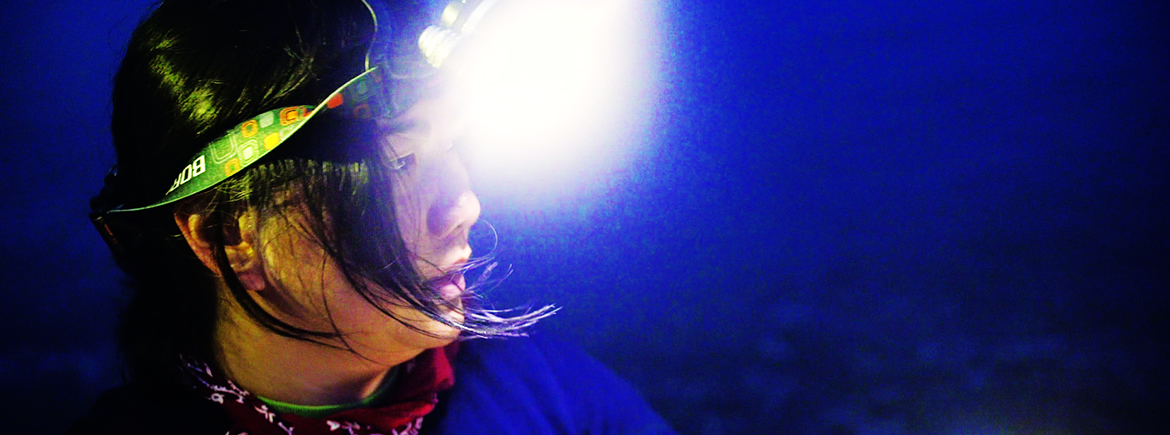

 Counting birds for more than 100 years generates data on a changing climate and there’s an app for that: eBird. Surfer science using smart tech tracks ocean acidification and coastal temperatures in the Smartfin project. We spend “A Year in the Life of Citizen Science” including a Thanksgiving Monarch Butterfly Watch in California. Seasonal change is tracked by Latina and Native American teens in springtime in Albuquerque, New Mexico, and horseshoe crabs are surveyed in summer by retirees along mid-Atlantic coasts. In Uganda, World Bank economists and local partners generate data for sustainable development. The far-ranging potential of “Citizen Science in the Digital Age.”
Counting birds for more than 100 years generates data on a changing climate and there’s an app for that: eBird. Surfer science using smart tech tracks ocean acidification and coastal temperatures in the Smartfin project. We spend “A Year in the Life of Citizen Science” including a Thanksgiving Monarch Butterfly Watch in California. Seasonal change is tracked by Latina and Native American teens in springtime in Albuquerque, New Mexico, and horseshoe crabs are surveyed in summer by retirees along mid-Atlantic coasts. In Uganda, World Bank economists and local partners generate data for sustainable development. The far-ranging potential of “Citizen Science in the Digital Age.”The first of its kind, the Citizen Science Academy Online is intended to be a complete professional development resource for educators and will include online courses, modules, tutorials, and a virtual community of practice.
This collection of resources supports your subject knowledge and teaching of primary chemistry, including the linking of science with cross-curricula topics, with resources that detail investigations to run with your class.
Turn your students into citizen scientists in three simple steps! Project Noah was created to provide people of all ages with a simple, easy-to-use way to share their experiences with wildlife. By encouraging your students to share their observations and contribute to Project Noah missions, you not only help students to reconnect with nature, you provide them with real opportunities to make a difference.
A Public Television series about Citizen Science, Crowdsourcing and Mobile Tech.
Every observation can contribute to biodiversity science, from the rarest butterfly to the most common backyard weed. We share your findings with scientific data repositories like the Global Biodiversity Information Facility to help scientists find and use your data. All you have to do is observe.
eBird offers innovative online tools for birders to keep track of their own lists and contribute their bird sightings for use in science and conservation.
Each year, 15,000 people count birds at their feeders for Project FeederWatch. With more than 1.5 million checklists submitted since 1987, FeederWatchers have contributed valuable data enabling scientists to monitor changes in the distribution and abundance of birds.
By finding and monitoring bird nests, NestWatch participants help scientists track the breeding success of birds across North America.
Welcome to the Habitat Network. Whether you have been mapping for a while now or are just getting started, this tutorial offers basic guidance on getting started in the project.
This is not just any puzzle game. This is a quantum puzzle game! You can just play it for fun, or you can use it to conduct scientific research in the field of quantum error correction.
Do you love to walk beaches and search for washed up treasures? Are you interested in becoming a citizen scientist? Beach Observer is the app for you! Get involved by simply taking a photo and recording what you have observed. It’s that easy!
SENSR is a tool to create, share and manage a citizen science project running on mobile devices to harness the power of citizen scientists.
Smartfin is a surfboard fin with sensors that measures multiple ocean parameters including salinity, pH, temperature, location, and wave characteristics. The data surfers acquire while in the water will become accessible in near real-time. Smartfin will not only serve the worldwide scientific community with valuable ocean data but will also raise environmental awareness about our oceans in general.
What is the secret to a long life? The heartbeat of some animals may hold a clue. We are consolidating reports of the heart rate and lifespan of as many vertebrate species as possible. Scanning through old books and papers, we have already found data on more than 150 species of mammals. Now we need your help tracking down records for species of birds, reptiles and fish!
The goals of Beespotter are to engage citizen scientists in data collection to establish a much-needed baseline for monitoring population declines, to increase public awareness of pollinator diversity, and enhance public appreciation of pollination as an ecosystem service.
The Zooniverse enables everyone to take part in real cutting edge research in many fields across the sciences, humanities, and more. The Zooniverse creates opportunities for you to unlock answers and contribute to real discoveries.
We are the largest citizen science project focused on pollinators with over 100,000 members. To say thank you to our members for all you have done for pollinators, we have a present for you, Bee Identification Cards!
SharkBase is a global shark* encounter database helping to map the distribution and structure of shark* populations worldwide. Please get involved and become a Citizen Shark Scientist by submitting your past, present, and future shark* encounters to SharkBase.